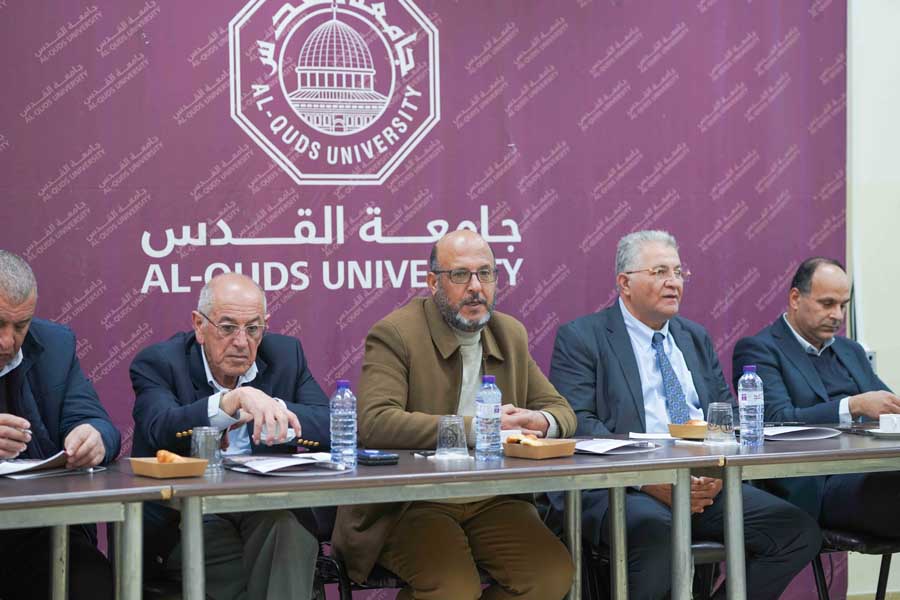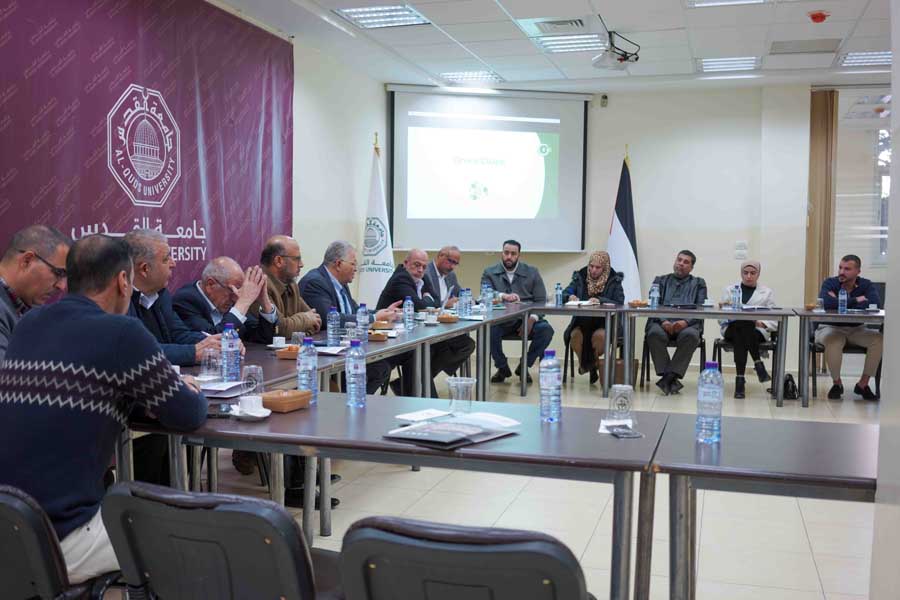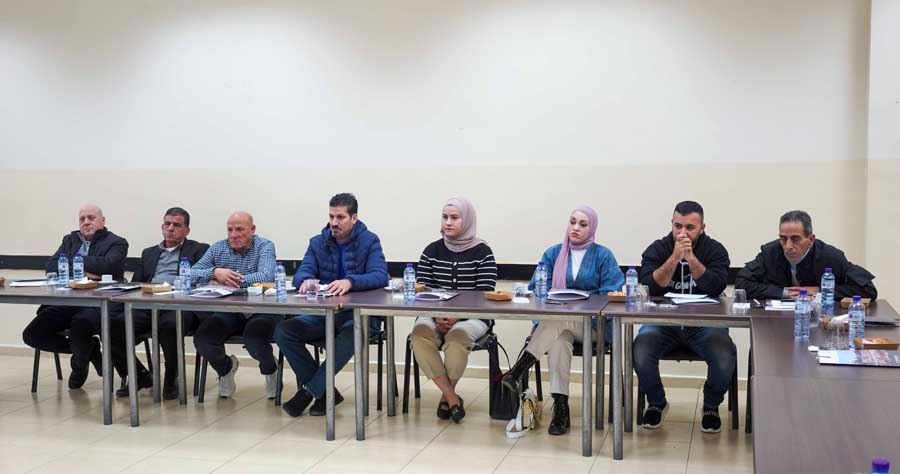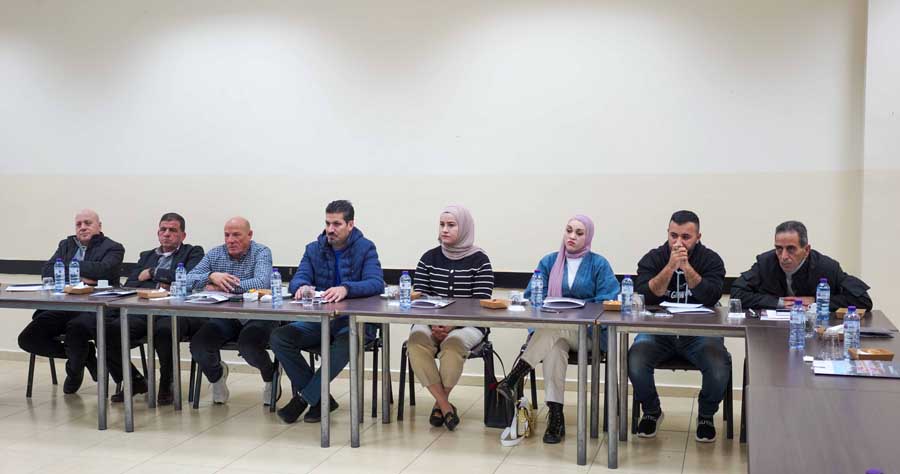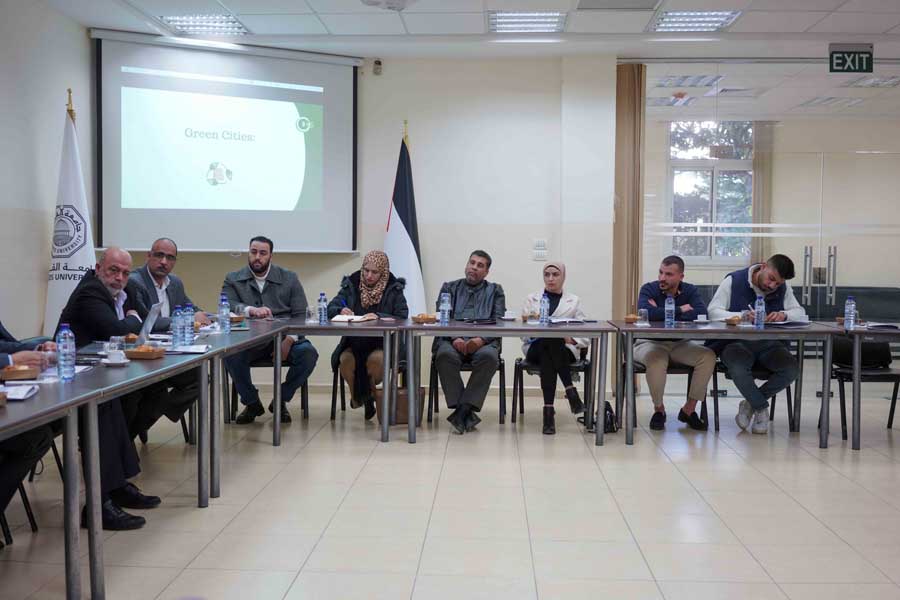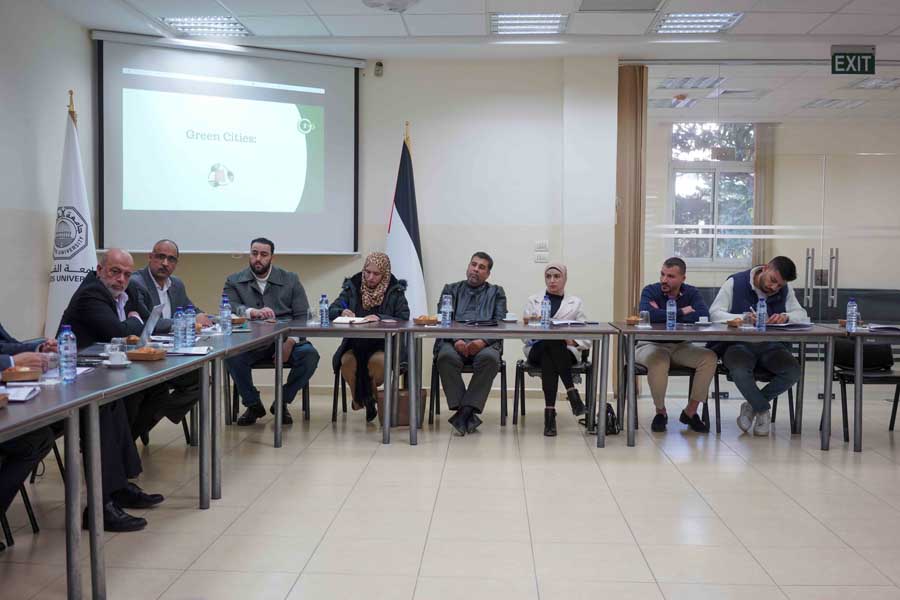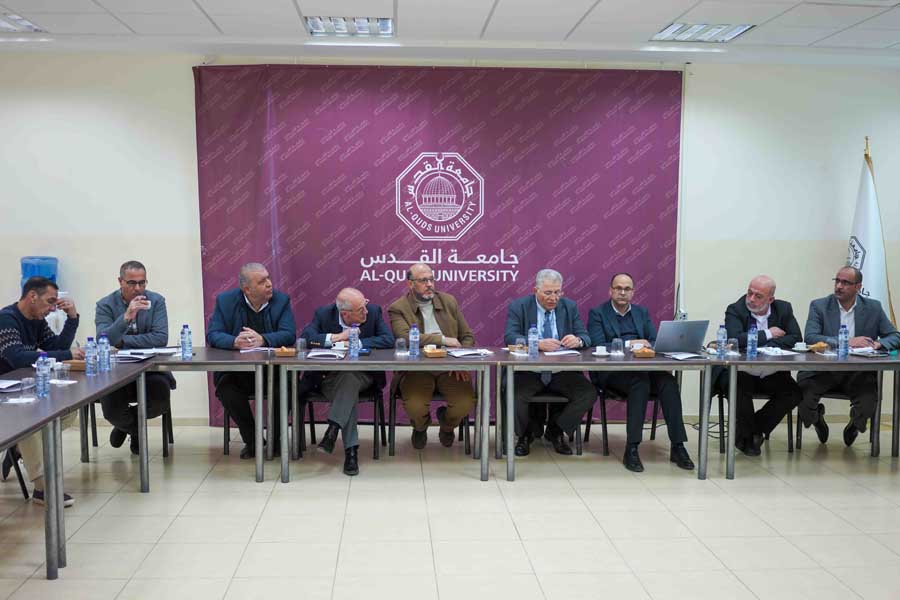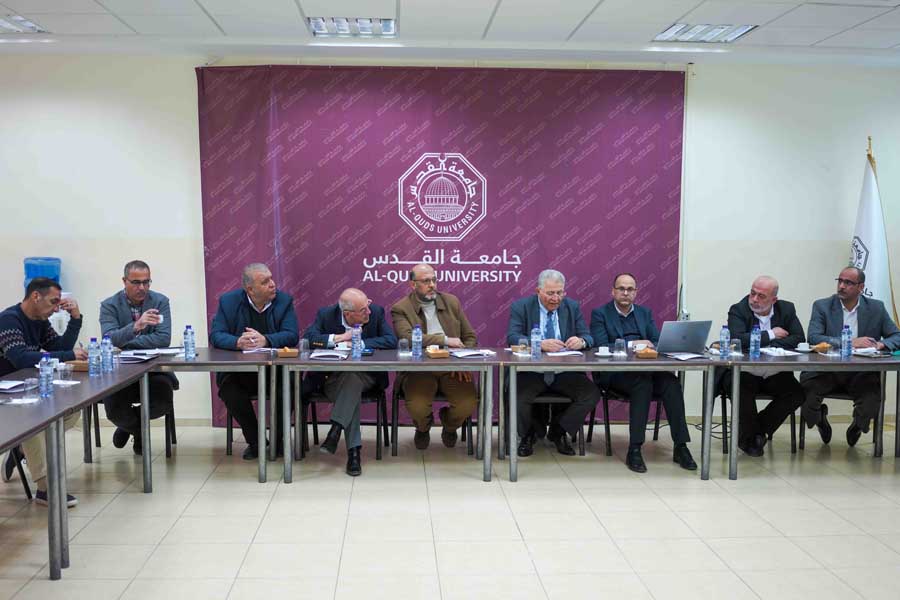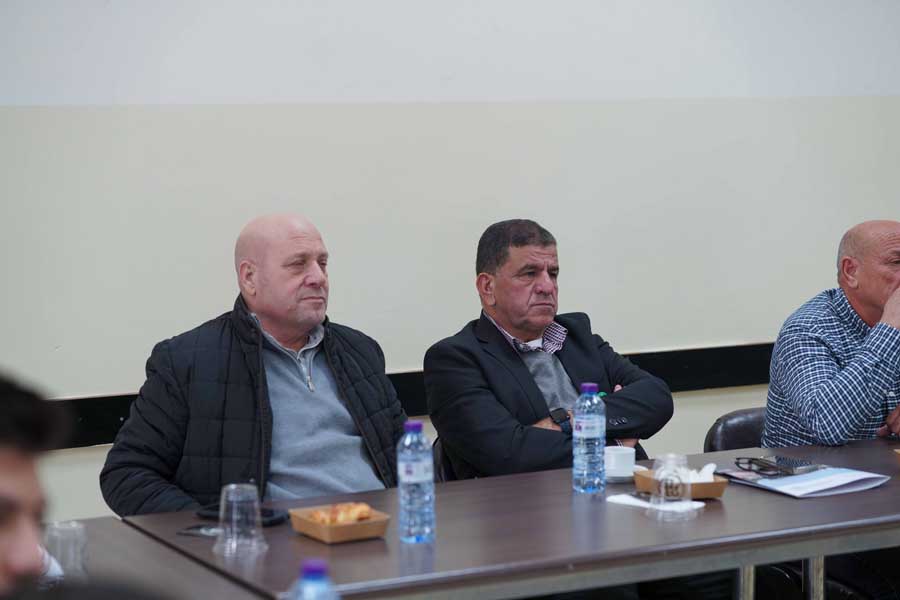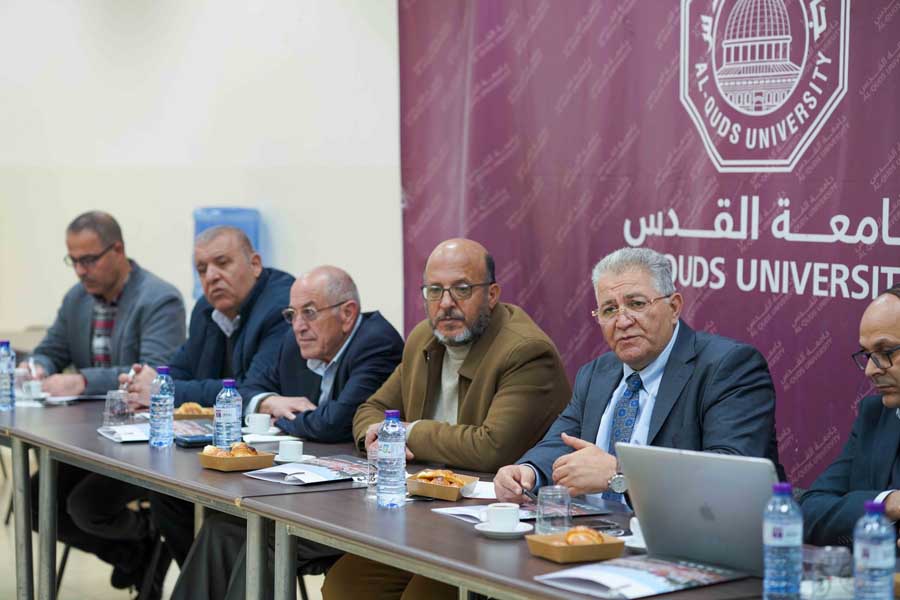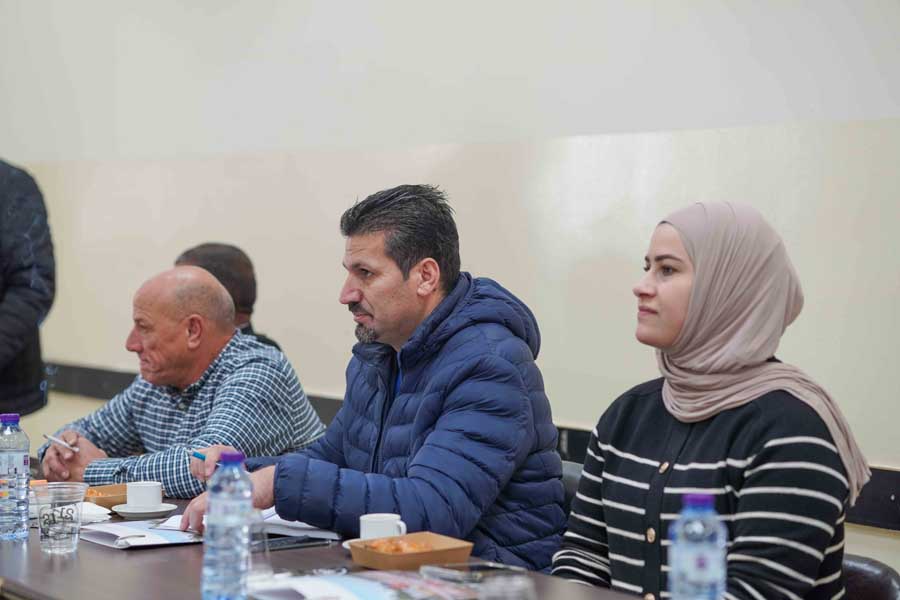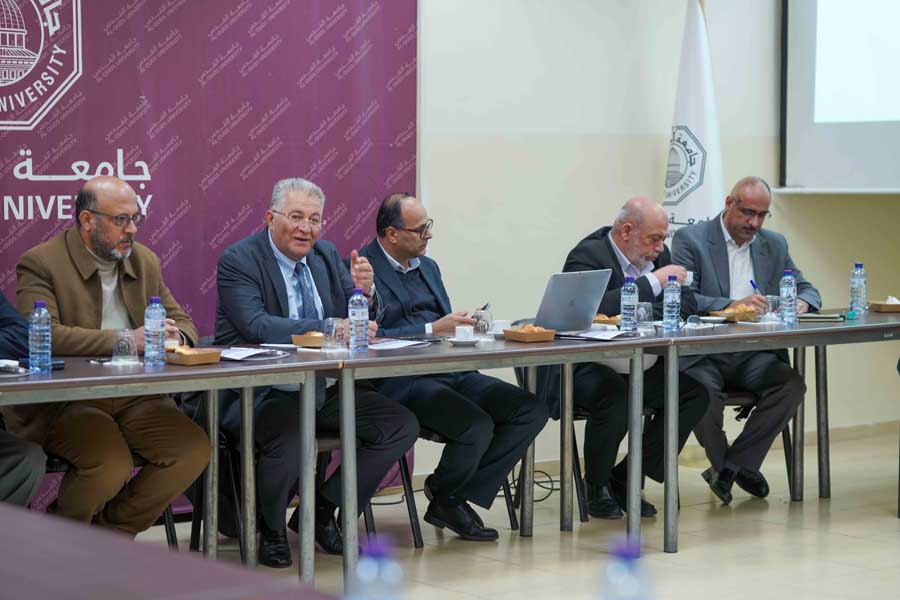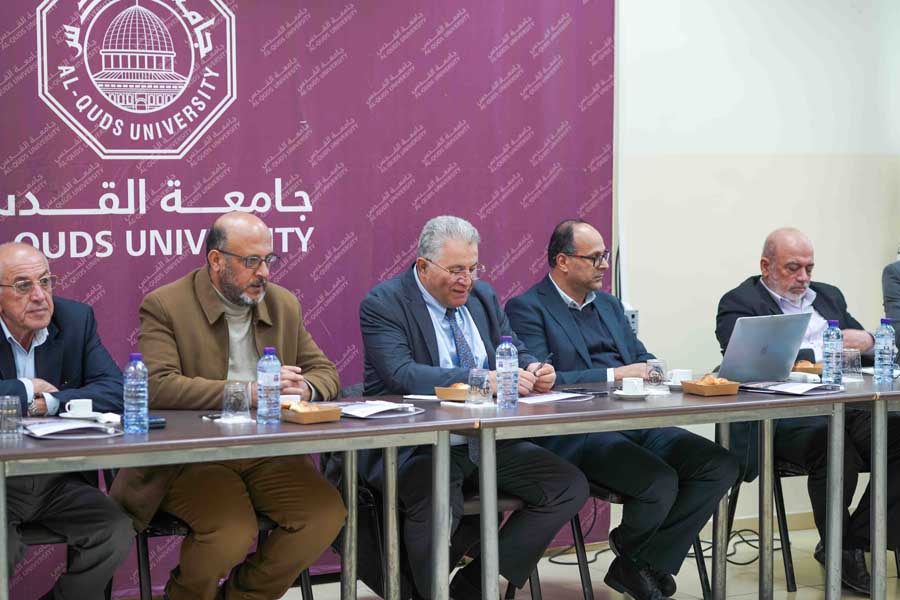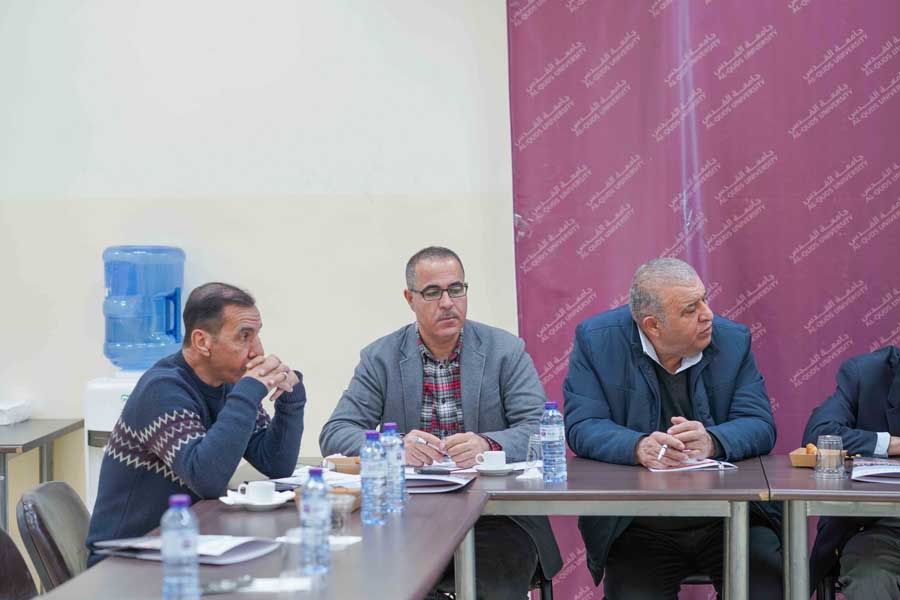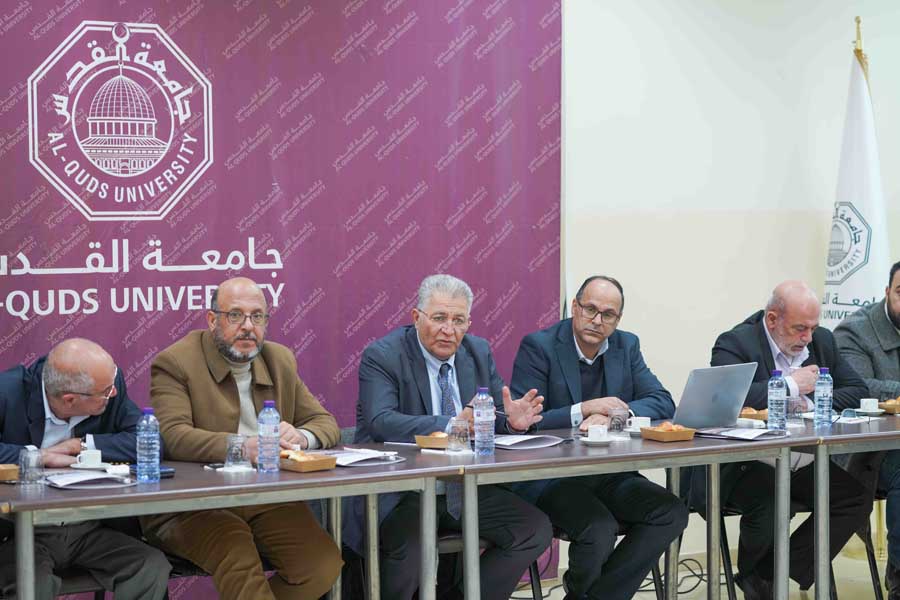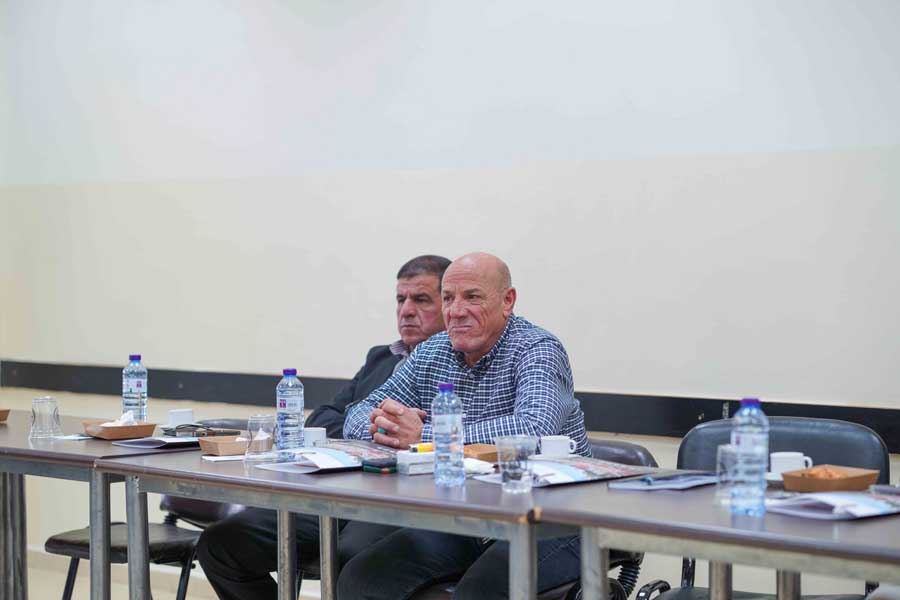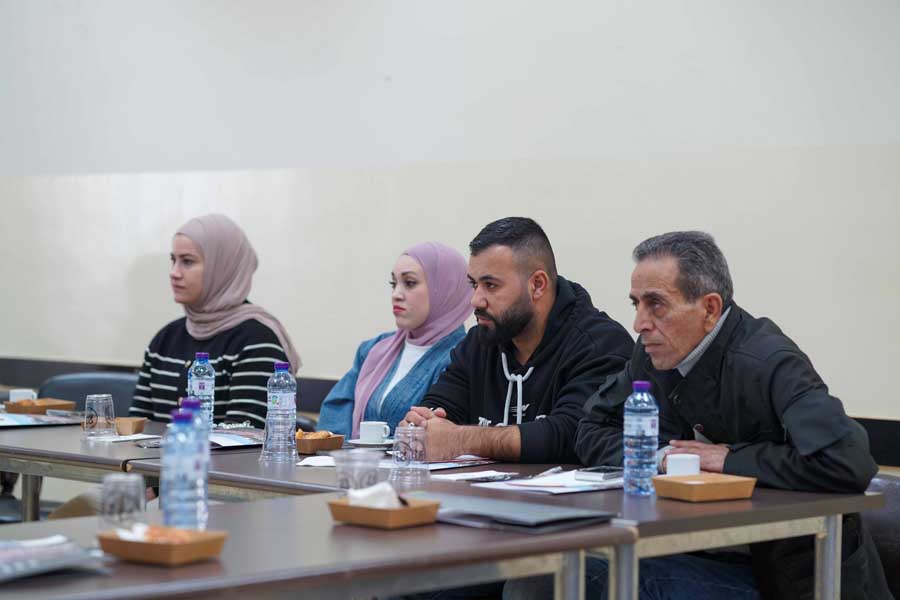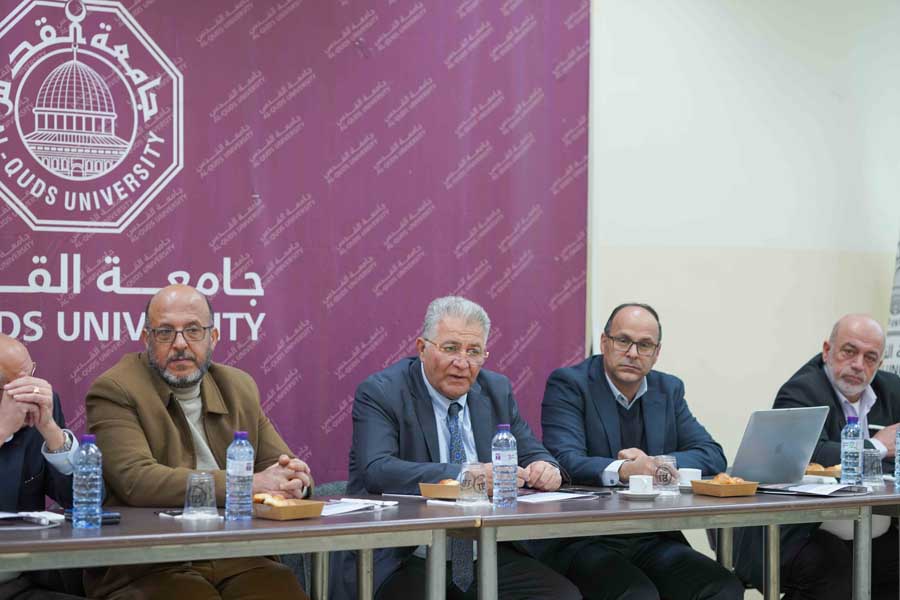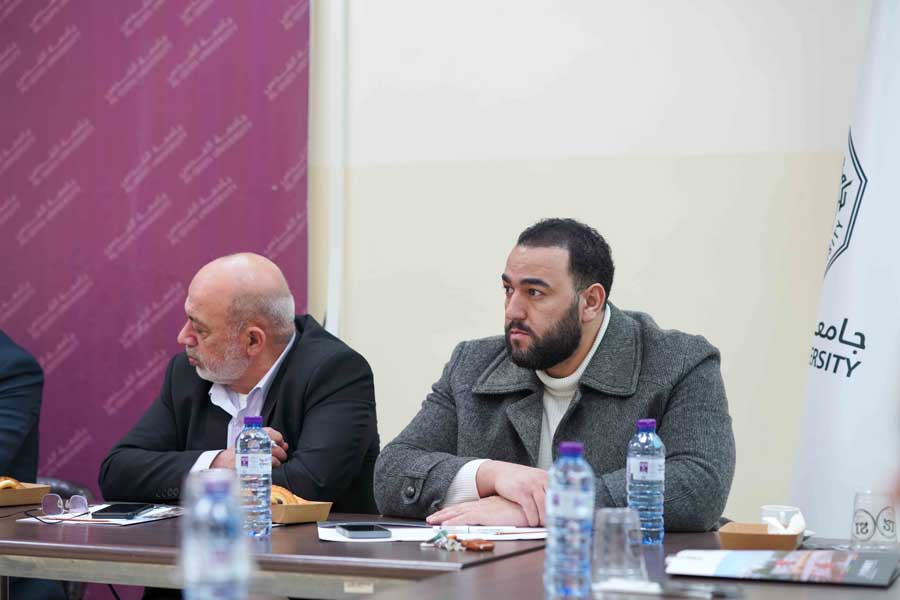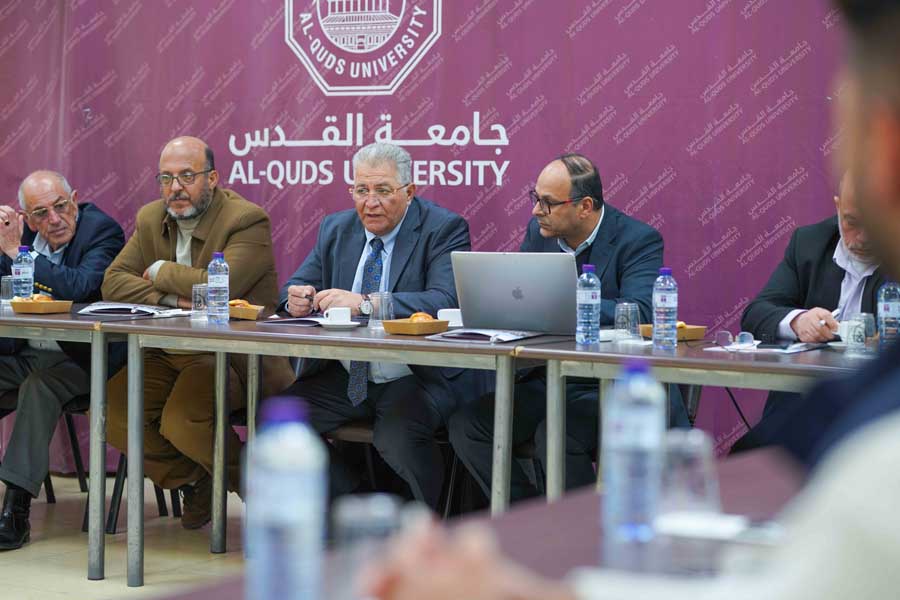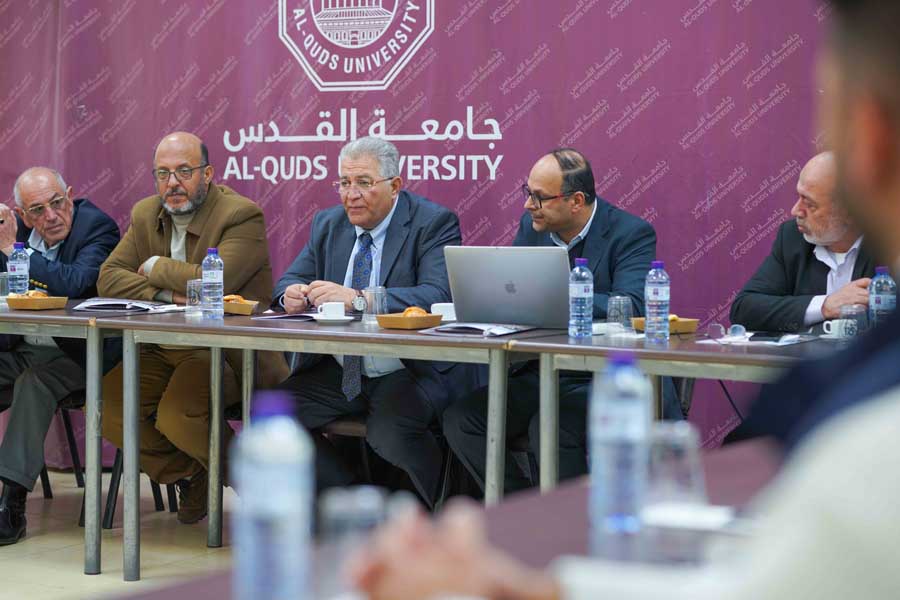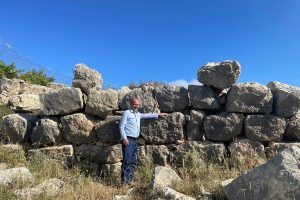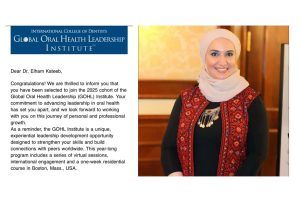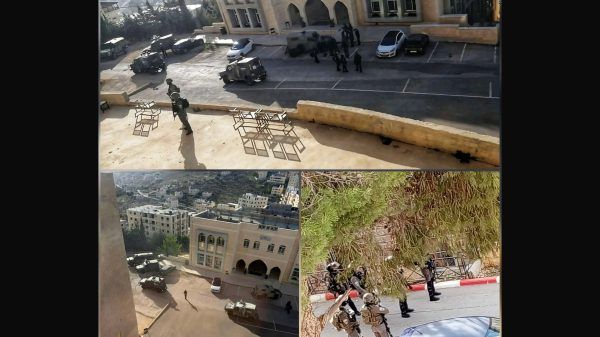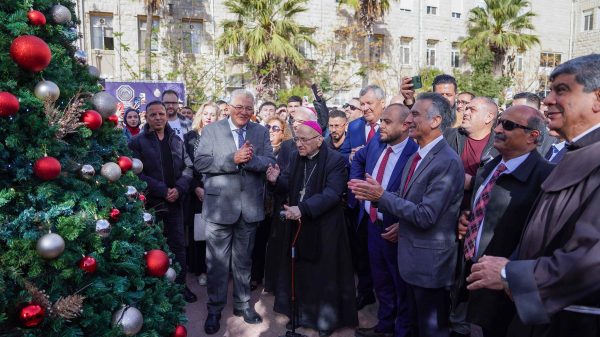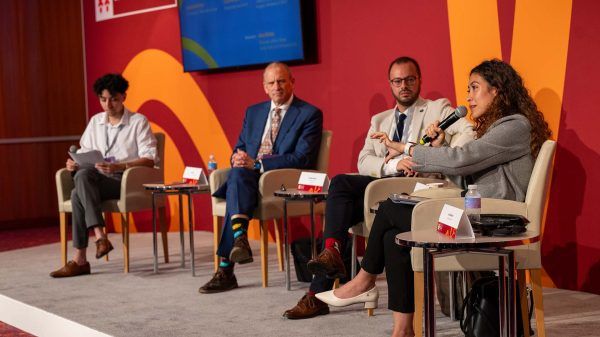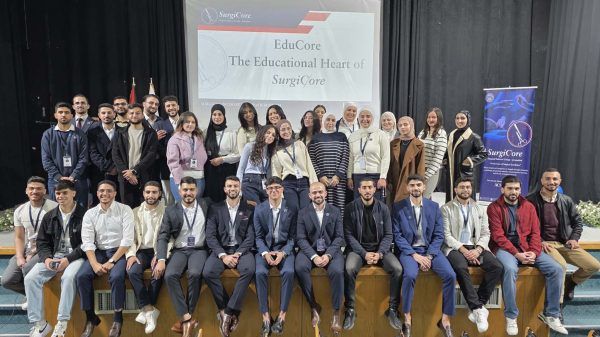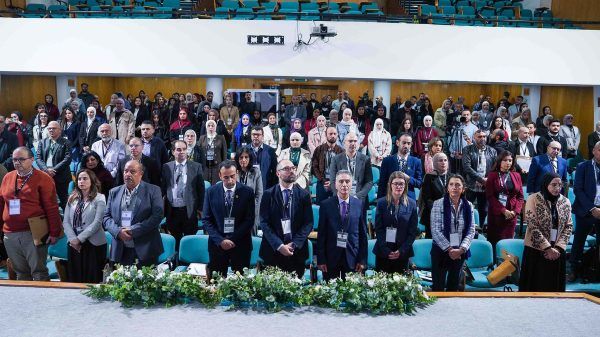Al-Quds University recently hosted a workshop titled “Researching the launch of innovative investment projects to reduce the amount of waste in the northeast and southeast areas of Jerusalem.” The event was chaired by the University President, Prof. Imad Abu Kishk, and Vice President for Planning, Development and Quality Affairs Prof. Dr. Jawad Shuqeir. The event also featured the participation of Director General of Joint Councils at the Ministry of Local Government Mr. Walid Abu Halawa, representatives of municipalities in the region, and local officials and experts. The workshop centered on the implementation of sorting, separation, and composting techniques through the aerobic digestion process. The objective of this approach is to enhance waste management and to achieve environmental and economic benefits for the local community.
Prof. Abu Kishk underscored the significance of the project, which marks a pioneering endeavor in Palestine, and expressed his aspiration for its success in these areas, with the ultimate objective of its expansion to encompass the remainder of the governorates.
He further elaborated that the university’s role extends beyond education, encompassing the provision of practical solutions to local environmental concerns, in alignment with its social responsibility. Additionally, he underscored the institution’s profound interest in scientific research across diverse fields, emphasizing their impact on both society and the environment. Dr. Shuqeir delivered a comprehensive presentation, detailing the mechanisms employed for waste collection, transportation, and sorting. A pivotal aspect of his presentation focused on the extraction of compost through aerobic digestion techniques. He also provided a comprehensive review of the necessary infrastructure and technical expertise to ensure the effective implementation of the project.
The Director General of Joint Councils at the Ministry of Local Government, Mr. Walid Abu al-Halawa, articulated the ministry’s commitment to providing comprehensive support for the project, entailing the allocation of all requisite technical and administrative personnel to ensure its success. He underscored the imperative for collaborative efforts among all relevant stakeholders. He highlighted the anticipated environmental and social advantages of the project, along with the potential challenges it might encounter, emphasizing the necessity for proactive planning to mitigate these risks.
Mr. Jamal Abu Hilal, Chairman of the Joint Council, expounded on the significance of repurposing waste as a resource, emphasizing the imminent threat to the capacity of major landfills, such as Al Minya landfill, which underscores the imperative for innovative solutions to manage solid waste in a sustainable manner that benefits the community.
Mr. Abdul Salam Salameh, Director General of Local Government in Jerusalem, underscored the significance of this initiative as a strategic solution to address the waste management problem in the Jerusalem Governorate. He emphasized that all available resources will be allocated to support this initiative and that it is essential to collaborate in a comprehensive manner among all relevant stakeholders to achieve the objectives of the project.



